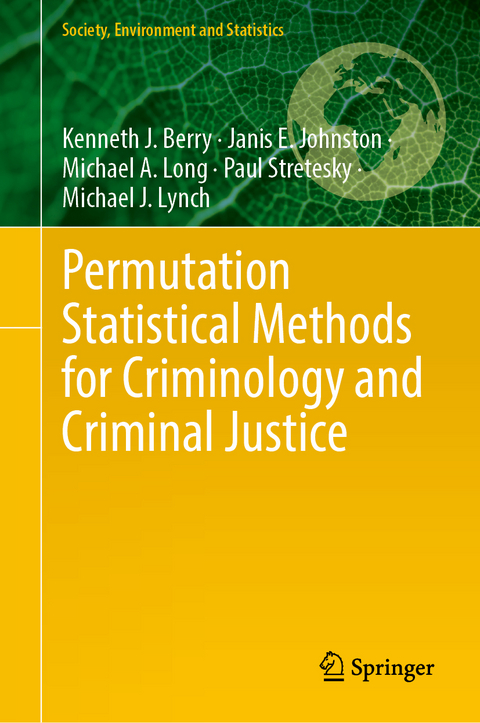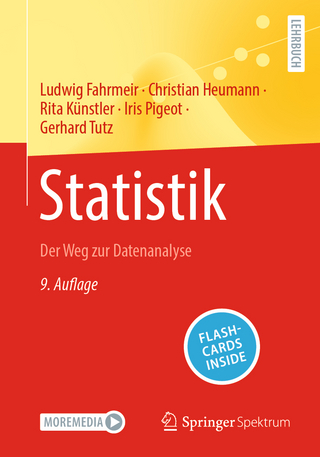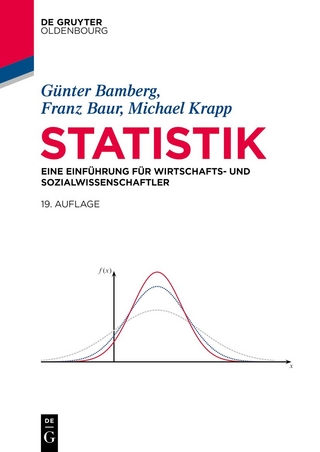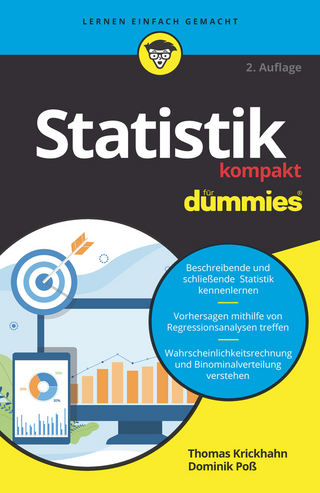
Permutation Statistical Methods for Criminology and Criminal Justice
Springer International Publishing (Verlag)
978-3-031-59666-7 (ISBN)
- Noch nicht erschienen - erscheint am 12.01.2025
- Versandkostenfrei innerhalb Deutschlands
- Auch auf Rechnung
- Verfügbarkeit in der Filiale vor Ort prüfen
- Artikel merken
This book takes a unique approach to explaining permutation statistical methods for advanced undergraduate students, graduate students, faculty, researchers, and other professionals interested in the areas of criminology or criminal justice. The book integrates permutation statistical methods with a wide range of classical statistical methods. It opens with a comparison of two models of statistical inference: the classical population model espoused by J. Neyman and E. Pearson and the permutation model first introduced by R.A. Fisher and E.J.G. Pitman. Numerous comparisons of permutation and classical statistical methods are illustrated with examples from criminology and criminal justice and supplemented with a variety of R scripts for ease of computation. The text follows the general outline of an introductory textbook in statistics with chapters on central tendency, variability, one-sample tests, two-sample tests, matched-pairs tests, completely-randomized analysis of variance, randomized-blocks analysis of variance, simple linear regression and correlation, and the analysis of goodness of fit and contingency.
Unlike classical statistical methods, permutation statistical methods do not rely on theoretical distributions, avoid the usual assumptions of normality and homogeneity, depend solely on the observed data, and do not require random sampling, making permutation statistical methods ideal for analyzing criminology and criminal justice databases. Permutation methods are relatively new in that it took modern computing power to make them available to those working in criminology and criminal justice research.
The book contains detailed examples of permutation analyses. Each analysis is paired with a conventional analysis; for example, a permutation test of the difference between experimental and control groups is contrasted with Student's two-sample $t$ test. An added feature is the inclusion of multiple historical notes on the origin and development of both parametric and conventional tests and measures.
Designed for an audience with a basic statistical background and a strong interest in parametric and non-parametric statistics, the book can easily serve as a textbook for undergraduate and graduate students in criminology, criminal justice, or sociology, as well as serving as a research source for faculty, researchers, and other professionals in the area of criminology. No statistical training beyond a first course in statistics is required, but some knowledge of, or interest in, criminology or criminal justice is assumed.
Kenneth J. Berry is Professor Emeritus in the Department of Sociology at Colorado State University. He is the author of eight books and over 190 journal articles, primarily in the areas of statistics and quantitative research methods.
Janis E. Johnston is employed by the U.S. Government and is an Affiliate Faculty member in the Department of Sociology at Colorado State University. She is the author of six books and over 40 journal articles, primarily in the areas of statistics and quantitative research methods.
Michael A. Long is Professor and Director of Graduate Studies in the Department of Sociology at Oklahoma State University. He is the author of six books and over 100 journal articles and book chapters, primarily in the areas of environmental sociology, green criminology, food insecurity and quantitative methodology.
Paul B. Stretesky is Professor of Sociology in the Department of Social Sciences at Northumbria University, UK. He is author of eight books and over 100 journal articles, primarily in the areas of environmental justice, green criminology and food insecurity.
Michael J. Lynch is Professor and Director of the Graduate Program in the Department of Criminology at University of South Florida. He is author/editor of over 25 books and over 120 journal articles, primarily in the areas of green criminology, radical criminology, and environmental sociology.
Introduction.- Permutation Statistical Methods.- Central Tendency and Variability.- One-Sample Tests.- Two-Sample Tests.- Matched-Pairs Tests.- Completely-Randomized Designs.- Randomized-Blocks Designs.- Correlation and Association.- Goodness of Fit and Contingency.
| Erscheint lt. Verlag | 12.1.2025 |
|---|---|
| Reihe/Serie | Society, Environment and Statistics |
| Zusatzinfo | Approx. 650 p. |
| Verlagsort | Cham |
| Sprache | englisch |
| Maße | 155 x 235 mm |
| Themenwelt | Mathematik / Informatik ► Mathematik ► Statistik |
| Mathematik / Informatik ► Mathematik ► Wahrscheinlichkeit / Kombinatorik | |
| Recht / Steuern ► Strafrecht ► Kriminologie | |
| Sozialwissenschaften ► Soziologie ► Empirische Sozialforschung | |
| Schlagworte | chi-squared tests • criminal justice • Monte-Carlo simulations • Permutation statistical methods • randomized-blocks • Student's t-tests • Student’s t-tests |
| ISBN-10 | 3-031-59666-8 / 3031596668 |
| ISBN-13 | 978-3-031-59666-7 / 9783031596667 |
| Zustand | Neuware |
| Haben Sie eine Frage zum Produkt? |
aus dem Bereich


